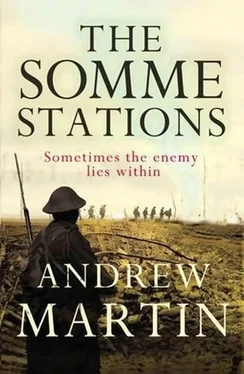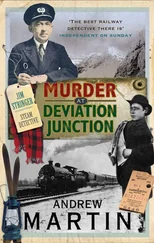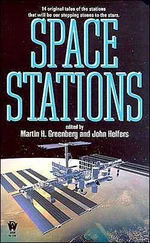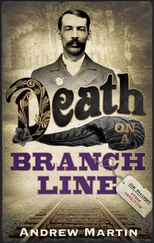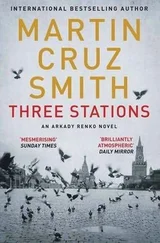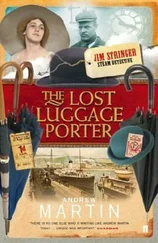Shells came flying, landing either side of us, as if telling me to get on with it. Everyone climbed up; I gave a tug on the regulator and we began rolling back towards Burton Dump. I had been about to say that for all its good points, the jakes at The Horseshoe was at the bottom of the garden, which was a bugger when it rained. I’d sometimes bike along the river for a pint there when the children were in bed, and I’d hear the roaring of the weir – which was next to the Lock – from half a mile away.
On the rattling wagon, Dawson sat smoking again, while the twins stood, exchanging whispers. Roy was nodding at something Andy was saying, at the same time fishing about in his pockets, perhaps looking for his own fags. Oliver Butler was at his post on the coupling gear, and since we were rolling backwards, he was now at the front, like the figurehead on a ship. Even though I could only see his back, I somehow knew he was thinking hard. Leo Tate, cause of all this disturbance in the Butlers, was now climbing over the coal bunker, and down onto the wagon. He stood in the centre of it, perfectly balanced and looking to left and right. He’d long since forgotten about Naburn and its lock, and was on the look-out for… what? Some new problem to solve. Something out there in the ruined trees he could set to rights. We came out of the trees, and rolled past Old Station – I only saw it because I was on the look-out for it – and then I knew where to look for Holgate Villa. It still stood. Then came the New Station, followed by the different rumble of the girder bridge over the Ancre. What had been an ascent was now a tricky descent, and I knocked off the regulator, so that we coasted down towards Aveluy Wood, rattling and clanking in the sudden silence. There hadn’t been a shell for five minutes and we’d shortly be back at base, but I didn’t care for the way that Tate was prowling on the wagon, looking to left and right.
He turned and raised his hand to me, indicating that I should stop. He was walking forwards to Oliver Butler, to warn him of same. He’d found something to fix. He was speaking to Dawson, who kept throwing anxious or half-amused glances back to me, as Tate lectured him on the subject of a filthy puddle on the edge of the trees we were approaching. It was a shell hole, about fifteen yards off. I could make out the black shine of the water, and I didn’t like the look of it. As Butler screwed down his brake, Tate was saying something to the effect: ‘I mean to have a sample of that water.’
‘Why, sir?’ said Dawson. ‘In ten minutes you can have a glass of ale in the mess.’
But I knew what Tate was about. His plan was to fit all the engines with a hose and a lifting injector to take on water from the shell holes. That way, the Boche would be helping us by putting down shells near the tracks – a notion that appealed no end to Tate. On the other hand, the two-foot lines were never likely to extend far enough for the engines to run low on the water put into them at Burton Dump. And muck floating about in a boiler caused more trouble than it was worth. Tate was muttering something about ‘a simple filter to stop priming’ – it was all Greek to Dawson. Oliver Butler, standing over his brake, was eyeing me. I believed he was thinking of different water – Naburn Lock – and it was then that I had my idea of writing to the wife to ask about the late history of that spot, and whether the name Butler was involved in any way.
Tate jumped down from the wagon. He called out, ‘Does any man have a billy?’
Tinsley leant into me and said, ‘There’s one in the locker.’
I said, ‘Don’t bloody encourage him,’ but too late: Tinsley was repeating the information out loud. Tinsley opened the locker and handed over the can. As Tate made towards the shell hole, I switched my gaze to the twins who were sitting cross-legged on the wagon. ‘Fine style… Fine Style,’ I heard, and having lit their cigarettes, they both turned to look at Tate, as though expecting to be entertained. They, at least, seemed to have put Naburn Lock from their minds. Tate was standing by the edge of the pool, contemplating the water. He hadn’t yet bent down to take the sample when the whistling started. At that point Tate did crouch down – not for fear of the shell, but to collect water – and so there was one thing going up and one thing going down. I knew after the count of three that the shell would be close, and if I’d been stone deaf, then Alfred Tinsley’s eyes – he was frozen in the act of sweeping the footplate – would have told me as much. I had my hands over my ears when the thing came down. The night became day for an instant, and I saw Tate dive into the water, at the sight of which Tinsley leant away from the engine and spewed, for only the top half of Tate had dived. His legs had been slow off the mark, had remained behind, and for a moment they had remained standing. The shell had been shrapnel, not high explosive, and the last of the bullets were now raining down into the black water. I turned my head towards the wagon. I was listening to my own breathing, and it seemed a bloody cheek, disrespectful to Tate, that it should be carrying on, even if the breaths were coming too fast. Oliver Butler was crouched behind his brake wheel; Dawson had simply turned about so that he now sat facing away from what he’d just seen. But the twins continued to stare at the spot where Tate’s legs had toppled.
‘He’s ’appened an accident,’ I heard one of them say.
‘ Proper job,’ said the other.
In the silence that followed the shell, I thought of all that brain… all those schemes at the bottom of that black water. My next thought was: there’s no commanding officer here, and it was as though every man had the same thought, for all started talking at once. Oliver Butler was calling out to me, ‘Open her up, we’re getting out of here.’ Dawson was pacing next to the wagon, saying over and over, ‘Takes the fucking cake, that does… It takes the fucking biscuit …’ The twins were muttering fast to each other, pointing towards where Tate had been and saying, ‘He’s there and there. That’s him, and that’s him.’
I passed Tinsley a bit of rag that hung on the fire door handle – this to wipe his face. But he’d recovered quickly, and was apologising by now, moving over to his brake and making ready to unscrew it.
I said, ‘Hold on, we’re not going back without Tate.’
I couldn’t say that it was any great feeling for the bloke that made me want to fish his top half out of the water. It was more the thought that it would not be manly to skulk back to Burton Dump without him. It would not be officer-like either. I was the driver of the engine, and the driver of the engine is the captain of the ship. I’d been a free agent for a while there at the regulator, and I’d got back my taste for independent action.
There was a tarpaulin on the wagon. I scrambled over the coal bunker, and dropped down next to it.
‘Come on,’ I said to Dawson, ‘we’re going to get him.’
‘It’s the shock, you know,’ he said. ‘You’re in bloody shock.’
But he was following behind – with hurricane lamp in hand – as I struck out to the shell hole. Dawson could talk about shock. He was gabbling away nineteen to the dozen. ‘His legs ought to be round here somewhere,’ he said, as we closed on the pond. ‘I mean they can’t have gone far – not on their own. Christ, they’ve come apart. There’s one . Or is that somebody else’s fucking leg? I think that’s another over there.’
‘That leg’s definitely his,’ I said, indicating the first one. ‘We’ll come back later for it. Bring that light over here, will you?’
He did so, but needn’t have bothered. The water wasn’t deep, and the upper half of Tate was on the edge of it.
Читать дальше
